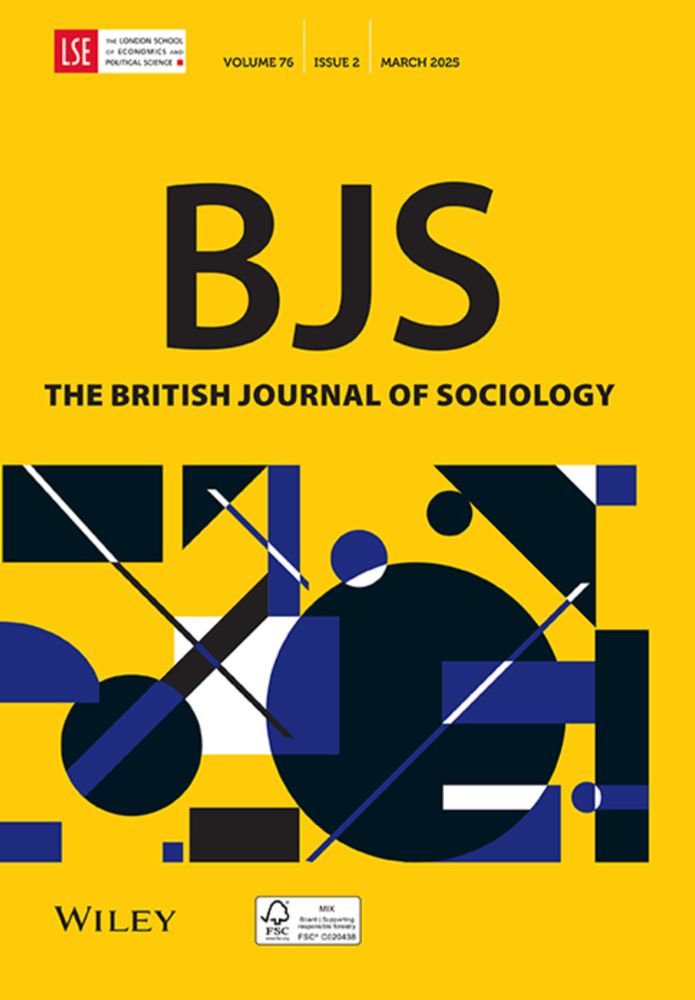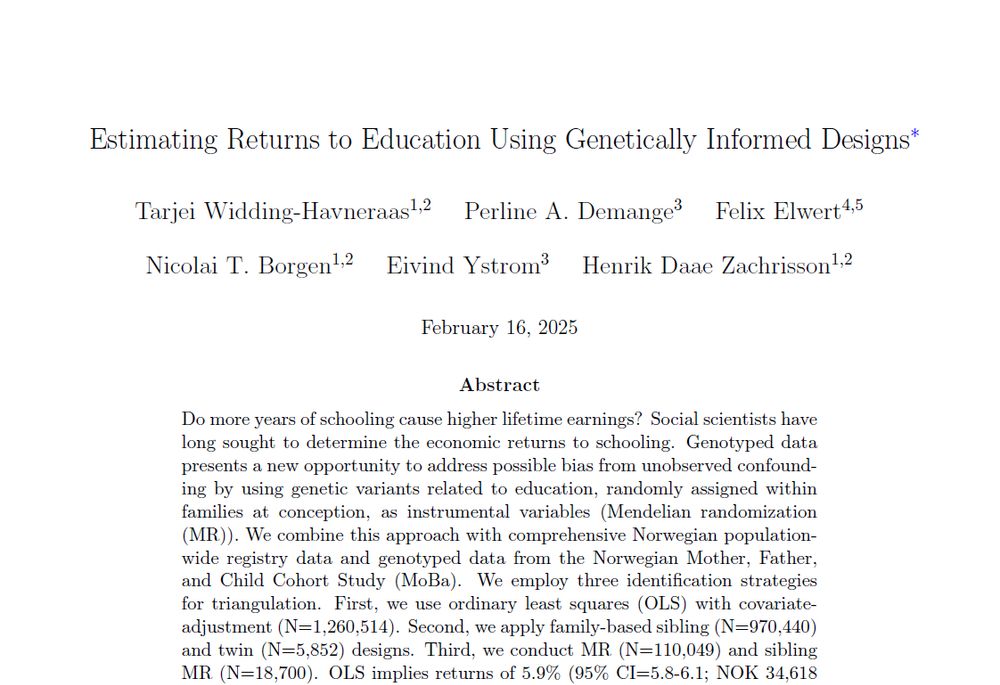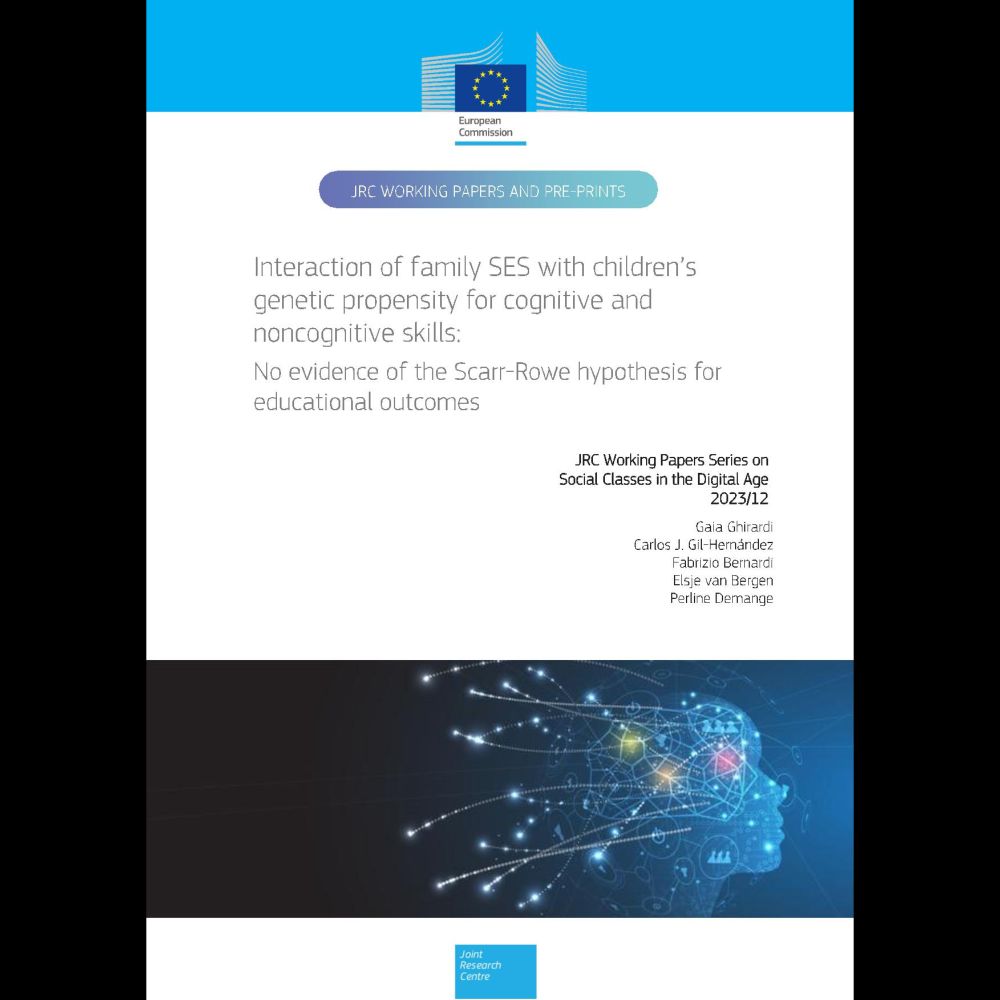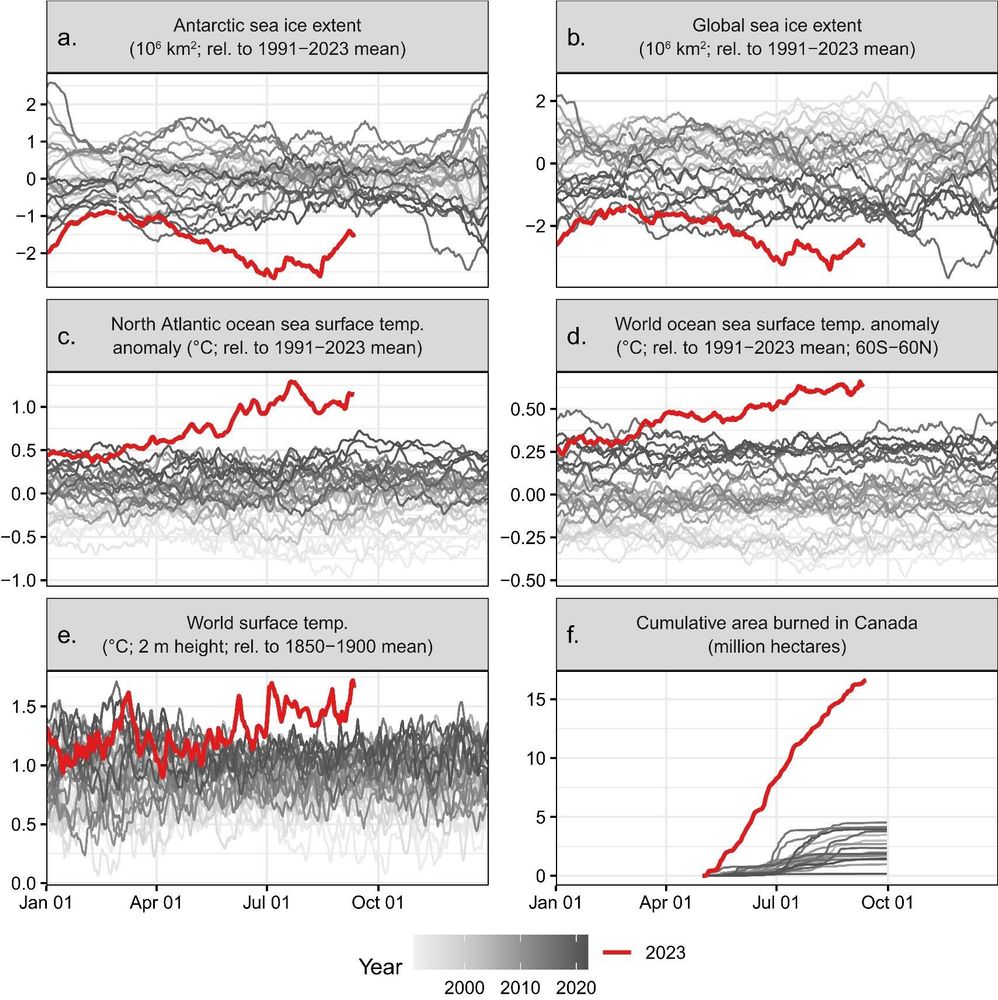
She/her
Triangulating adoption- and CoT-designs, we find that parental 💔 has minimal impact on children's partnership formation but increases their risk of partnership dissolution.
doi.org/10.1111/jomf...

Triangulating adoption- and CoT-designs, we find that parental 💔 has minimal impact on children's partnership formation but increases their risk of partnership dissolution.
doi.org/10.1111/jomf...
Why are the negative educational consequences of parental separation stronger among high-SES children?
→ When high-SES parents separate, they lose their ability to compensate for their child’s low genetic propensity for education 🧬👪

Why are the negative educational consequences of parental separation stronger among high-SES children?
→ When high-SES parents separate, they lose their ability to compensate for their child’s low genetic propensity for education 🧬👪
Some highlights in the thread.

onlinelibrary.wiley.com/doi/full/10....

onlinelibrary.wiley.com/doi/full/10....
Does more schooling increase earnings? We revisit this classic question using multiple genetically informed designs 📚🎓🧬 💰
osf.io/preprints/so...

Does more schooling increase earnings? We revisit this classic question using multiple genetically informed designs 📚🎓🧬 💰
osf.io/preprints/so...
Higher genetic dispositions for EA and sociodemographic factors decrease the risk of partnership dissolution, while dispositions for internalizing symptoms and risk behavior increase the risk 💔
Higher genetic dispositions for EA and sociodemographic factors decrease the risk of partnership dissolution, while dispositions for internalizing symptoms and risk behavior increase the risk 💔

Does family SES moderate the impact of children’s genetic predisposition for (non)cognitive skills on educational outcomes?
2nd WP of my thesis by a strong interdisciplinary team: Gil-Hernández, @fabriberna.bsky.social, van Bergen @perlinedemange.bsky.social! ✨

Does family SES moderate the impact of children’s genetic predisposition for (non)cognitive skills on educational outcomes?
2nd WP of my thesis by a strong interdisciplinary team: Gil-Hernández, @fabriberna.bsky.social, van Bergen @perlinedemange.bsky.social! ✨

Our results reveal the opposite pattern: a decoupling between ability and education over birth cohorts!
Out now in Scientific Reports!
www.nature.com/articles/s41...
Our results reveal the opposite pattern: a decoupling between ability and education over birth cohorts!
Out now in Scientific Reports!
www.nature.com/articles/s41...


